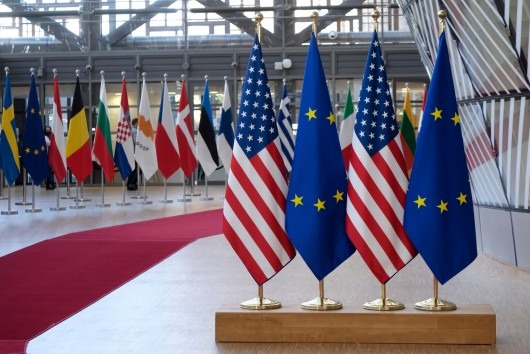US-Iran Tensions Rise Following Election Results

The recent U.S. election results have sparked concerns about a potential escalation in tensions between the United States and Iran. As President Trump prepares to return to office, foreign policy experts are closely watching for signs of how the administration might approach relations with Tehran.
Several factors contribute to the rising tensions:
- Nuclear Deal: Trump’s previous withdrawal from the Joint Comprehensive Plan of Action (JCPOA) and his criticism of attempts to renegotiate with Iran suggest a continued hardline stance on nuclear issues.
- Sanctions: The potential for increased economic sanctions against Iran looms large, with some experts predicting a “maximum pressure” campaign similar to Trump’s first term.
- Military Posturing: Both nations have engaged in shows of military strength in the Persian Gulf region, raising concerns about potential confrontations.
- Regional Alliances: Trump’s strong ties with Israel and Saudi Arabia, both regional rivals of Iran, could influence U.S. policy in the Middle East.
- Cyber Warfare: Increased cyber activities between the two nations have been reported, adding another layer of complexity to the relationship.
As the situation develops, diplomats and international organizations are calling for dialogue to prevent further escalation. The international community watches closely, aware that any major shift in U.S.-Iran relations could have significant implications for global stability and oil markets.
The coming months will be crucial in determining the trajectory of this complex and volatile relationship, with potential ramifications extending far beyond the borders of both nations.






